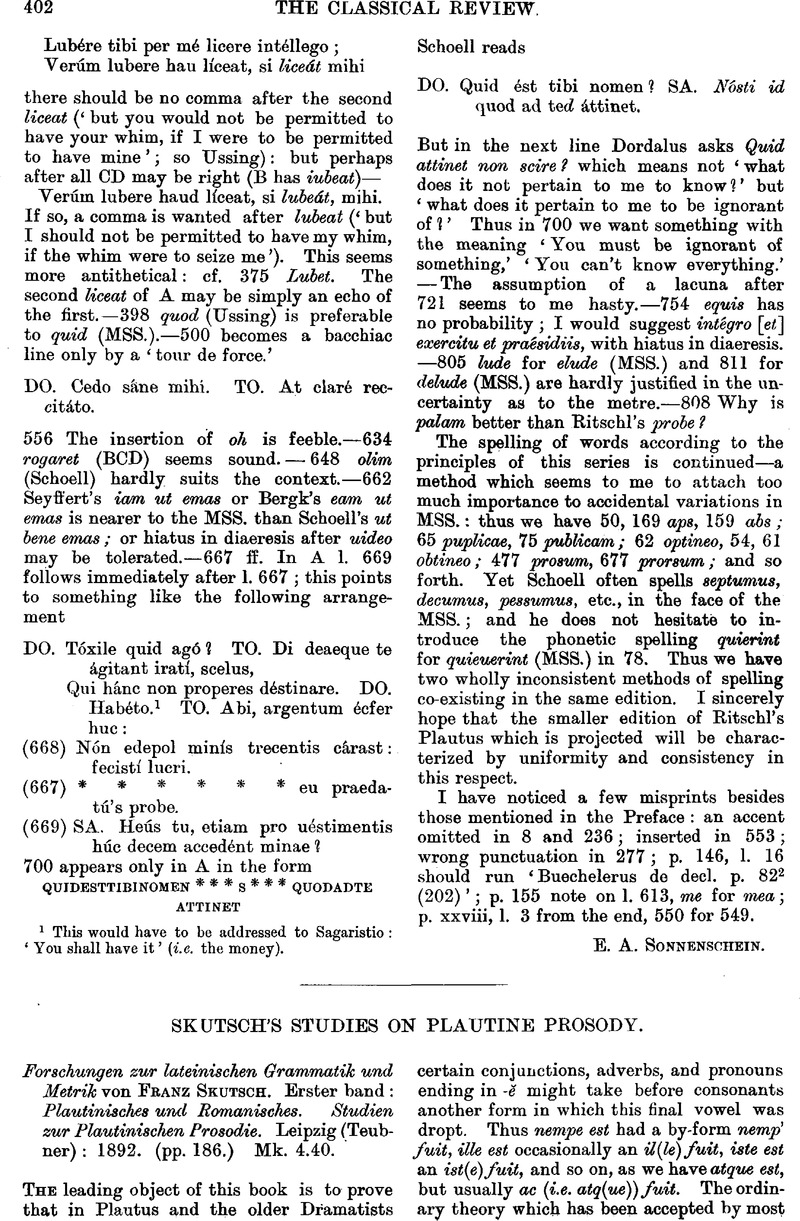No CrossRef data available.
Published online by Cambridge University Press: 27 October 2009

1 We might add mill(e) passum in True. 334 qui tíbi mill(e) passum péperisti moré morae, if this be the right reading; but the full form seems to be required in Men. 177. The shortened form might indeed, so far as the metre is concerned, have been used in phrases like that in Mil. 894, which I would read: mala mille meres. St! ne pane: peioribus conveniunt (malamilla P, like malafacta read in Trin. 185 by C). Biber(e) dari is quoted by Charisius 124 K from Fannius; and Pers. 821 allows the scansion biber(e) da.
2 To take an instance, not a very important one. In Ter. Adelph. 308 non intellego! Satís quae loquitur (loquatur), ‘ I do not sufficiently understand what he says,’ the accentuation satís quae loquitur would rather mean ‘ what he sufficiently says,’ if it be the rule, as it seems to be, that the postposited relative attracts the accent. (See the article in Journ. Phil. 1891.) The MSS. however and the corrector of the Bembinus read satis quaé loquatur, so that the jarring accentuation is, like so many cases of apparent conflict between accent and ictus, a mere ‘editor's reading.’ It is by the way this attraction of the accent by the postposited relative which makes me unwilling to depart from the order of the words given by the MSS. of Plautus, and confirmed by Festus, for Cos. 523 séd facito dum mérula per vorsús quod cantat.